Most homeowners probably don’t think about their gutters until they start overflowing with leaves and water. If you’re lucky, you may have time to clean them out before the next big rainstorm hits. But what if you don’t? How long can a house go without gutters before serious damage is done to the roof and foundation? Keep reading to find out!
Do You Have a Working Gutter System in Your House? You Should!
If you haven’t already installed a working gutter system in your house, it’s time to think seriously about investing in one.
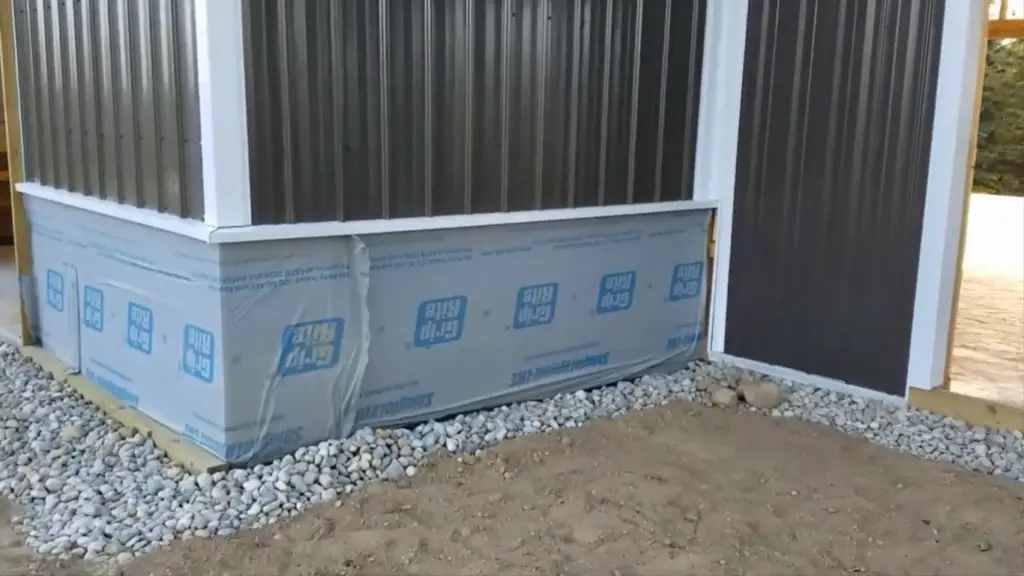
A well-maintained gutter system can last for years without requiring much maintenance or repair.
When shopping around for a gutter system, look for ones made from durable materials such as aluminum or vinyl. Also consider whether you need extra features such as leaf guards or splash blocks to keep debris out of your gutters and downspouts. Make sure you measure the area where you plan to install the gutters, as different sizes and styles are available.
Once you’ve chosen the right gutter system for your home, it’s important that you have it regularly inspected and serviced to ensure it is functioning properly. This includes cleaning out any debris or leaves caught in the gutters as well as checking for signs of rust or corrosion. If there are problems with your gutter system, don’t hesitate to call a professional roofer or gutter contractor for help.
Having a working gutter system on your house can make all the difference when it comes to protecting against water damage. It pays to invest in quality materials and regular maintenance in order to keep your gutters functioning properly for years to come. If you don’t already have one, now is the time to get a working gutter system installed in your house. You won’t regret it!
What is a Gutter System?
There are a variety of different styles of gutters available, so you should research what works best for you in terms of size, shape, material, installation requirements, and overall cost. Properly installed gutters can provide your home with lasting protection from heavy rains.
Benefits of Installing Gutter Systems
Gutter systems offer some great benefits for homeowners. For starters, they help prevent water damage caused by rainwater seeping into the walls and foundation of your home. This can save you time and money in repairs down the road. Gutters also provide an effective way to keep debris from clogging up your roof or gutters themselves. Additionally, installing a gutter system can significantly improve the aesthetic appeal of your home since it helps create a more streamlined look. Finally, having gutters installed can reduce potential erosion around your property’s perimeter which is beneficial if you have delicate flower beds or landscaping features in areas directly adjacent to your house.
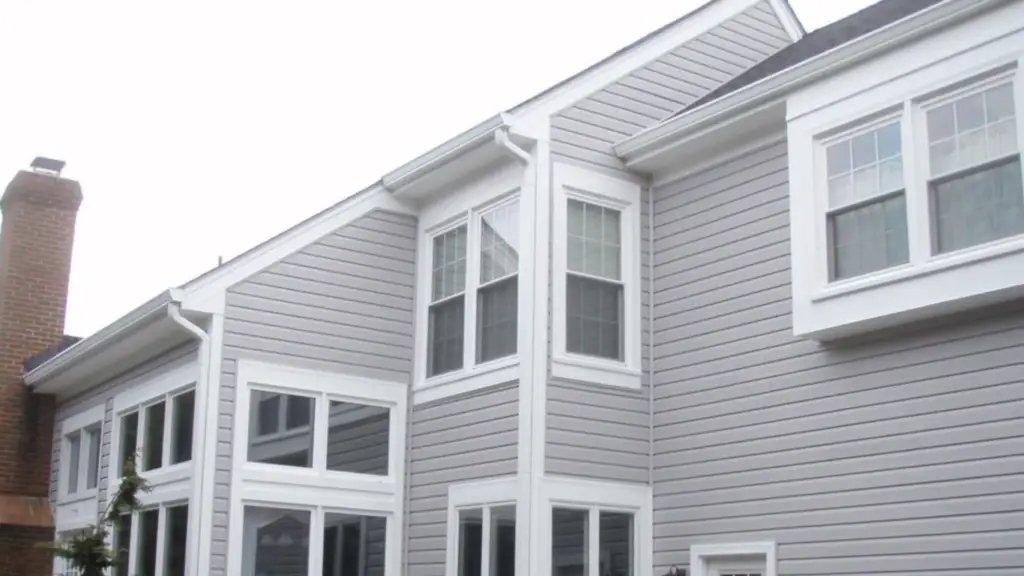
How Long Can a House Go Without Gutters?
The longevity of a home without gutters depends on many factors, such as the local climate, materials used in construction, and maintenance. Generally speaking, most homes can last for several years without gutters; however, if you live in an area with heavy rainfall or snow accumulation, this timeline could be much shorter.
Without proper drainage from gutters, water can get into your roof and walls, leading to costly damage and repairs. Even if you don’t have any visible signs of damage right away, moisture trapped inside your walls can cause mold growth over time. Additionally, gutterless homes are more susceptible to flooding during extreme weather events.
What Happens to a House Without a Gutter System?
Without a gutter system, rainwater can often pool on the roof and eventually seep through any weak spots or cracks in the shingles or siding. This creates problems inside the home such as warped ceilings, peeling paint, and other moisture-damaged surfaces. Water that ends up near your foundation could also compromise its structure over time. As water collects around the walls of your basement or crawl space, it can lead to mold growth, wood rot, and an increased risk of flooding during heavy rains.
Long-term exposure to excessive moisture also makes your home vulnerable to insect infestations— wood-destroying insects such as termites are attracted to damp environments where they can find an ample food source. If you’re not careful, these pests can cause extensive structural damage and weaken the integrity of your home.
Installing a gutter system is one of the best ways to protect your home from water damage. Gutters help direct rainwater away from the foundation and walls, preventing water saturation near those areas. If you don’t have gutters, now is the time to get them installed so you can enjoy peace of mind that your home is safeguarded against potential moisture-related problems.
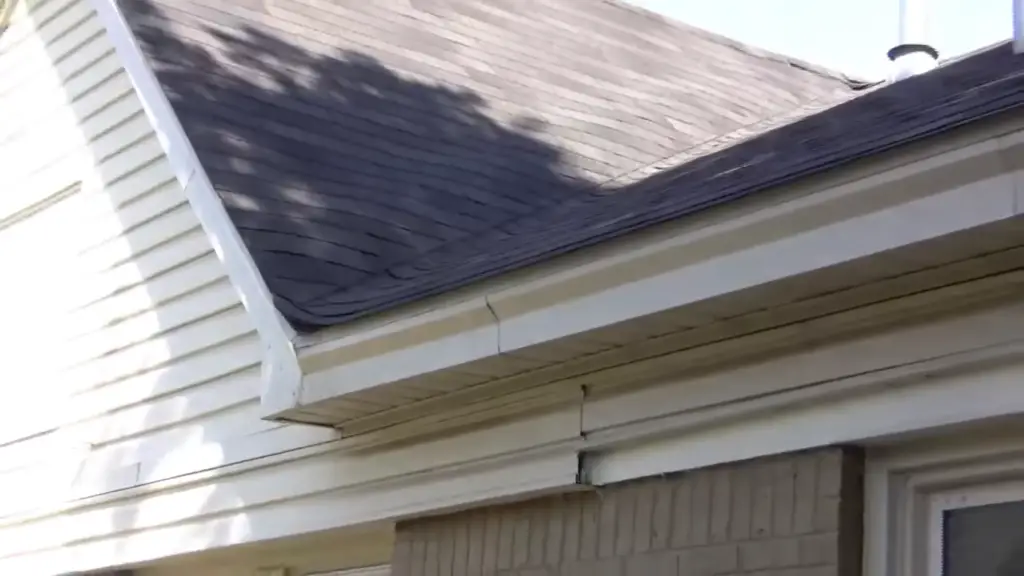
How Long Can a House Go Without Gutters?
Without gutters, a house can become vulnerable to water damage. That’s why it’s important to know how long your home can go without proper gutter installation or replacement.
In most cases, it’s usually best to replace or repair gutters as soon as possible. However, you may be able to get away with going for a few months without them before serious problems occur.
If you find yourself in a situation where you must go without gutters for a while, there are some steps you can take to minimize the damage that could happen. Make sure all holes and cracks around windows and doors are sealed up tightly so that rainwater doesn’t enter the home through any openings. Make sure to check the roof regularly for any signs of water damage, as well.
That said, it’s always a good idea to have your gutters replaced or repaired as soon as you can to prevent long-term water damage from happening. If you wait too long, you could be facing costly repairs that could have been avoided with proper gutter maintenance. So make sure to watch out for warning signs and get your gutters fixed up promptly!
When Might Your Roof Not Need Gutters?
If you live in an area with minimal rainfall, your roof may not need gutters. If the amount of rain that falls on your roof is small enough, it can easily run off without any additional help. This is especially true in areas with arid or desert-like climates. In addition, if you have a flat-roof house and/or have installed a special system designed to direct water away from the building, you could get away with not having gutters.
It’s important to remember that even in dry climates, your home still needs some way of handling accumulated water such as heavy rains. Without gutters, the water will usually pool near the foundation of the home which can lead to major damage over time. So even in places where gutters may not be necessary, you should still have some kind of water management system in place.
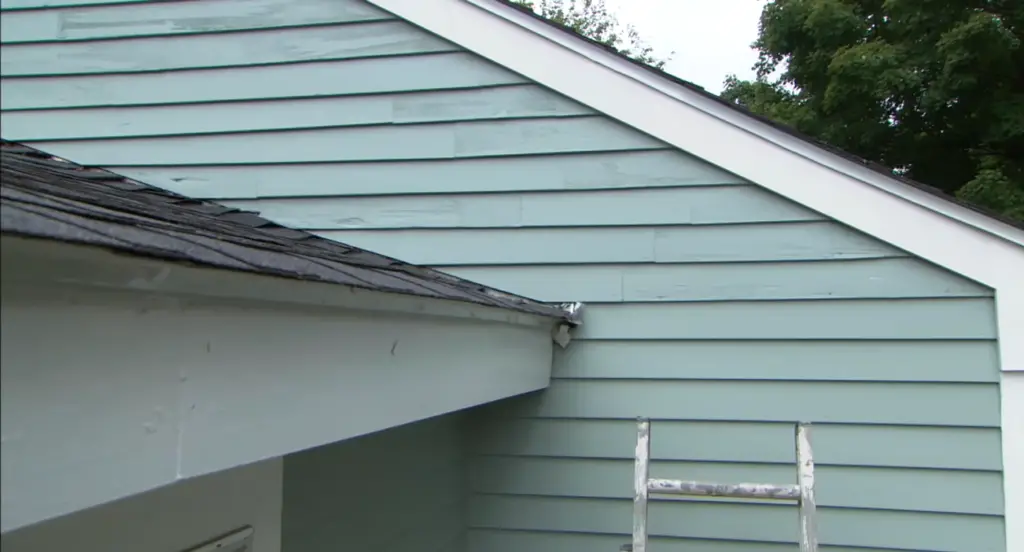
Another factor to consider is the type of roofing material used on your home. If it’s a metal roof such as aluminum, copper or steel, then chances are you don’t need gutters since these materials are built to handle heavy rains without extra assistance. The same goes for tile roofs, which can also handle a large amount of water without needing gutters. However, if you have an asphalt shingle roof or other organic material like wood shakes, having gutters will provide additional protection from water damage. In this case, it would probably be wise to install them.
So while there may be some instances where your roof doesn’t need gutters, it’s always a good idea to consult with an experienced roofer or other home improvement specialist before making any final decisions. They can help you assess the potential risks and determine the best way to protect your home from water damage.
Ultimately, whether or not you choose to install gutters on your roof largely comes down to personal preference. If you’re looking for additional protection from heavy rains, then having them would be wise. But if you live in a dry climate and have either metal or tile roofs, then it may not be necessary. As always, work with a professional and weigh the pros and cons before making an informed decision about what’s right for your home.
Why Does Your Home Require a Gutter System?
A gutter system is an important part of any house. The purpose of a gutter system is to divert the water away from your foundation and prevent water damage to your home. Without gutters, rainwater would collect around the base of your house, leading to erosion of its foundation and even flooding in extreme cases.
Furthermore, gutters keep debris such as leaves and twigs out of the water that eventually flows into drains or rivers. If these materials are allowed to build up in natural waterways, they can lead to clogged pipes and malfunctioning storm sewers which will increase costs for both repair and upkeep.
By having a functional gutter system installed on your home, you can protect it from potentially expensive water damage, prevent clogged gutters, and keep your home looking nice. Additionally, having a gutter system helps protect your landscaping from unnecessary water damage as well.
Preventing Basement Flooding
By installing a properly functioning gutter system, you can ensure that water is diverted away from the base of your house and prevent any serious flooding issues.
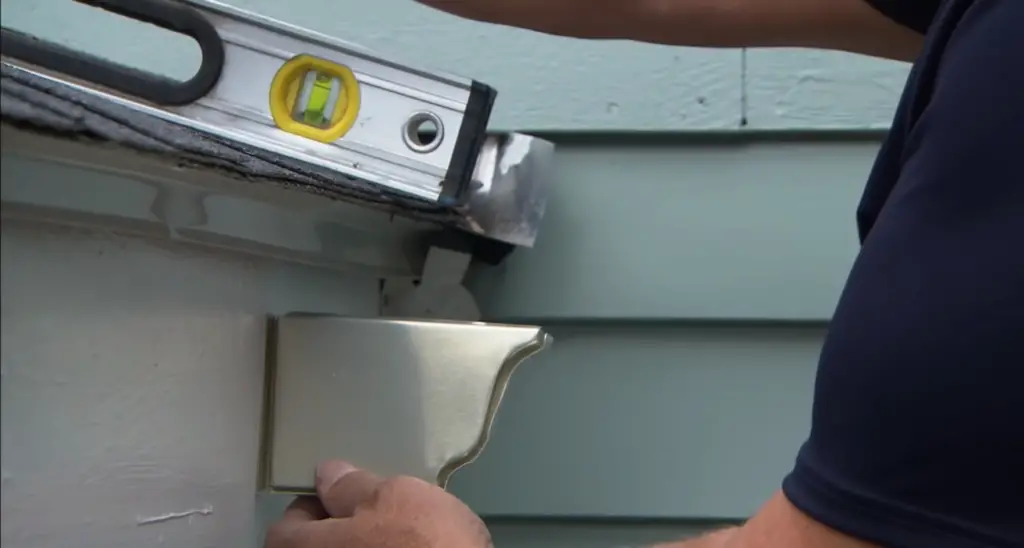
In addition to preventing basement flooding, a well-maintained gutter system will also help keep insects, birds, and other animals out of your home. Having blocked or overflowing gutters provides an ideal environment for pests such as mosquitoes and rodents to set up camp near your home. With regular maintenance of your gutters and downspouts, you can help keep these unwanted guests away from your house.
Protecting Home’s Siding
Siding is an important part of your home’s exterior and can be easily damaged if not properly maintained. Without gutters, rainwater will flow down the side of your house, which can lead to stains and discoloration on your siding over time. By installing a gutter system, you can help protect your home’s siding from damage due to water exposure.
Preventing Foundation Damages
Another advantage of having a properly functioning gutter system is that it can help protect your home’s foundation from damage due to water build-up and erosion. When rainwater gets into the soil around the foundation, it can slowly start to erode and weaken its base, leading to potential structural issues in the future.
Preventing Soil Erosion
Having a gutter system installed on your home can also help reduce soil erosion around the foundation. When rainwater flows away from the base of your house, it can help keep soil in place and prevent it from eroding or washing away over time. This will not only protect your foundation from damage but also helps maintain the landscape around your home.
Safeguarding Garden Beds
Gutters are not just beneficial for the structure of your home, but can also help protect your garden beds and plants from damage due to excess water. When rainwater flows away from the house, it can create an ideal environment for your plants by keeping them hydrated without flooding them with too much water.
Preventing External Structural Damages
Having a properly functioning gutter system installed in your home can help prevent damage to external structures such as decks and patios due to water exposure. By installing gutters, you can channel rainwater away from your home’s exterior and help maintain its integrity. This will not only extend the life of these areas, but also decrease the likelihood that costly repairs or replacements are needed in the future.
Preventing Landscape Damage
When rainwater is directed away from the house and garden beds, it helps keep the soil in place and prevents erosion and other related issues. This will ensure that your lawn and plants remain healthy for longer and reduce the need for costly repairs or replacements.
Water Stagnation and Trough Formation
In addition to preventing damage to your home, a gutter system can also help prevent water stagnation and trough formation in areas around the house. When rainwater doesn’t have an outlet, it will start to collect and form stagnant pools of water that can be hazardous for kids or pets. By installing gutters on your roof, you can ensure that this water is diverted away from the house and collected in a safe place where it won’t cause any harm.
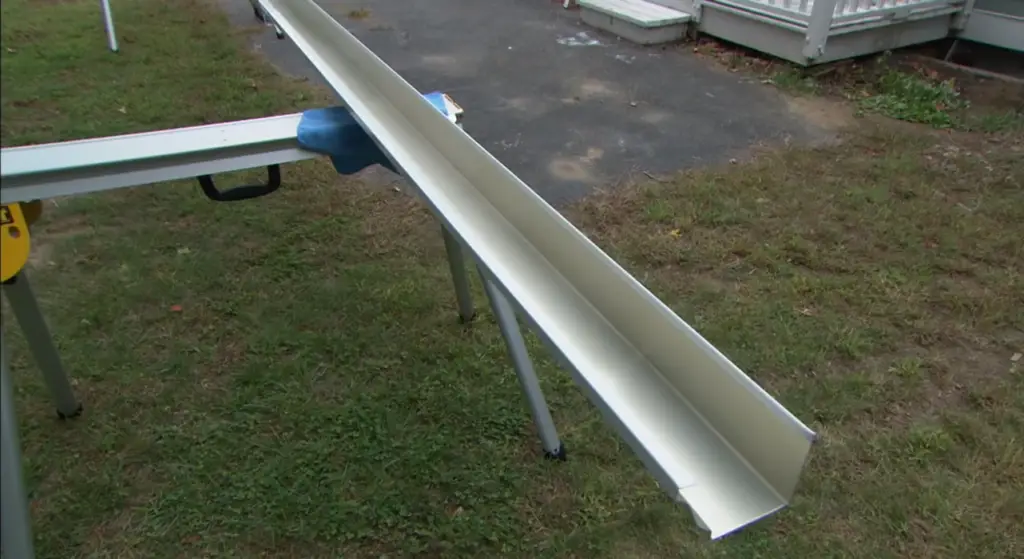
Minimizing Home Repair Costs
Finally, one of the biggest advantages of having a well-maintained gutter system is that it can help you minimize home repair costs. By ensuring that water is directed away from your house and landscape, you can prevent damage to these areas which will reduce the amount of money you need to spend on repairs or replacements. [1]
Having a functioning gutter system installed on your roof will provide numerous benefits for both your home and the landscape. From protecting the foundation to safeguarding garden beds and preventing external structural damage, there are plenty of reasons why gutters should be maintained regularly. So, make sure to give them a regular checkups and keep them in good condition for maximum protection!
Types of Gutters to Install on Your House
If you live in an area that gets a lot of precipitation, then it’s essential to install gutters on the outside of your home. Gutters are responsible for diverting rainwater away from your house and channeling it into designated areas. When deciding which type of gutter system to put on your house, there are several factors to consider.
One option is seamless aluminum gutters. These are generally made with aluminum coils that range in thickness and length. Seamless gutters typically cost more than traditional sectional ones, but they don’t have any seams or weak points that can cause leakage over time. In addition, they’re strong and durable, making them a great long-term investment for homeowners who want extra protection from the elements.
Another option is vinyl gutters, which are a more affordable alternative to aluminum ones. They’re lightweight, but they can be prone to cracking or sagging in certain climates. Vinyl gutters usually come in white or light-colored hues, so they’ll need occasional cleaning and maintenance to keep them looking fresh.
Finally, there are copper gutters. Copper is known for its strength and durability, so it’s an excellent choice if you want a gutter system that will last for years without having to worry about corrosion or rusting. It also has a unique aesthetic that many homeowners find attractive and adds an extra bit of character to their home’s exterior. However, copper isn’t the most cost-effective choice, so if you’re on a budget it may not be the best option.
No matter which type of gutter system you decide to install on your house, make sure that it’s installed correctly by a qualified professional. That way, you can rest assured knowing that your home is well protected from the elements.
FAQ
What happens if you don’t have a gutter?
Without a gutter, rainwater can’t be diverted away from your home. Without proper drainage, your foundation and basement can become vulnerable to water damage. Additionally, the soil around your house may become oversaturated with water which can lead to erosion and other issues. It’s important that you make sure that your home has a properly installed gutter system so you can avoid these problems! [2]
Are gutters needed around the entire house?
It all depends on the slope of your roof, the amount of foliage around your home, and how much rain you get in your area. Generally speaking, gutters are best installed around the entire perimeter of a house to help direct water away from building structures, foundation walls, siding, windowsills and other areas that could be vulnerable to water damage. It’s also a good idea to install gutter guards or covers if you have trees nearby in order to reduce debris buildup. Ultimately, it’s up to you – while gutters aren’t always necessary around an entire house, they can be a great way to protect against water damage and increase the longevity of your home. [3]
What can be used instead of a gutter?
There are other ways of directing water away from the foundation of your home, such as installing downspouts and splash blocks. Downspouts can be installed on the roof rather than gutters and will direct rainwater directly to a specific area, such as a rain barrel or off the side of your house. Splash blocks are masonry blocks placed at the end of a downspout that help to disperse and spread out water so it doesn’t pool near the foundation. Additionally, you may want to consider landscaping elements like dry creek beds or planting shrubs and trees with deep root systems that can help absorb rainfall before it reaches your home’s foundation. All in all, there are plenty of options if you don’t want to install gutters. It’s just a matter of deciding which option works best for your home and budget. [4]
Are gutters necessary in Florida?
Yes! Gutters are essential in Florida. Even though our state experiences a lot of sunshine and heat, we can still get heavy rain during the rainy season. Gutters help to channel the rain away from your home’s foundation, preventing water damage and possible flooding. They also help to protect your landscaping by redirecting the runoff away from it. Installing gutters is important for protecting your property and keeping it looking its best for years to come!
Useful Video: Does a House Need Rain Gutters – The Truth About Eaves Troughs
Conclusion
In conclusion, the length of time a house can go without gutters all depends on the climate and environment of the area you live in. If your home is located in an area with lots of rain or snow, then having gutters installed is essential to protect it from water damage. Additionally, if your home experiences extreme temperatures year-round, gutters can help keep your roof and foundation cool during the summer months and warm during the winter months. Finally, if you have trees near your home, then having gutters installed will help protect against falling debris and prevent any costly repairs that could arise from blocked drains or water damage. With proper maintenance and regular inspections by a professional gutter installer, you can ensure that your house remains safe and free from water damage for many years to come. Thanks for reading!
References
- https://www.uniquehomeguide.com/how-long-without-gutters/
- https://www.leafguard.com/blog/damages-from-not-having-gutters
- https://therhino.com/why-you-need-gutters-around-your-whole-house/
- https://housemethod.com/gutters/gutter-alternatives/



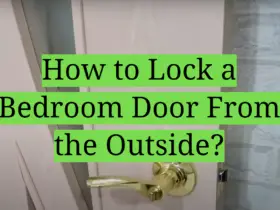

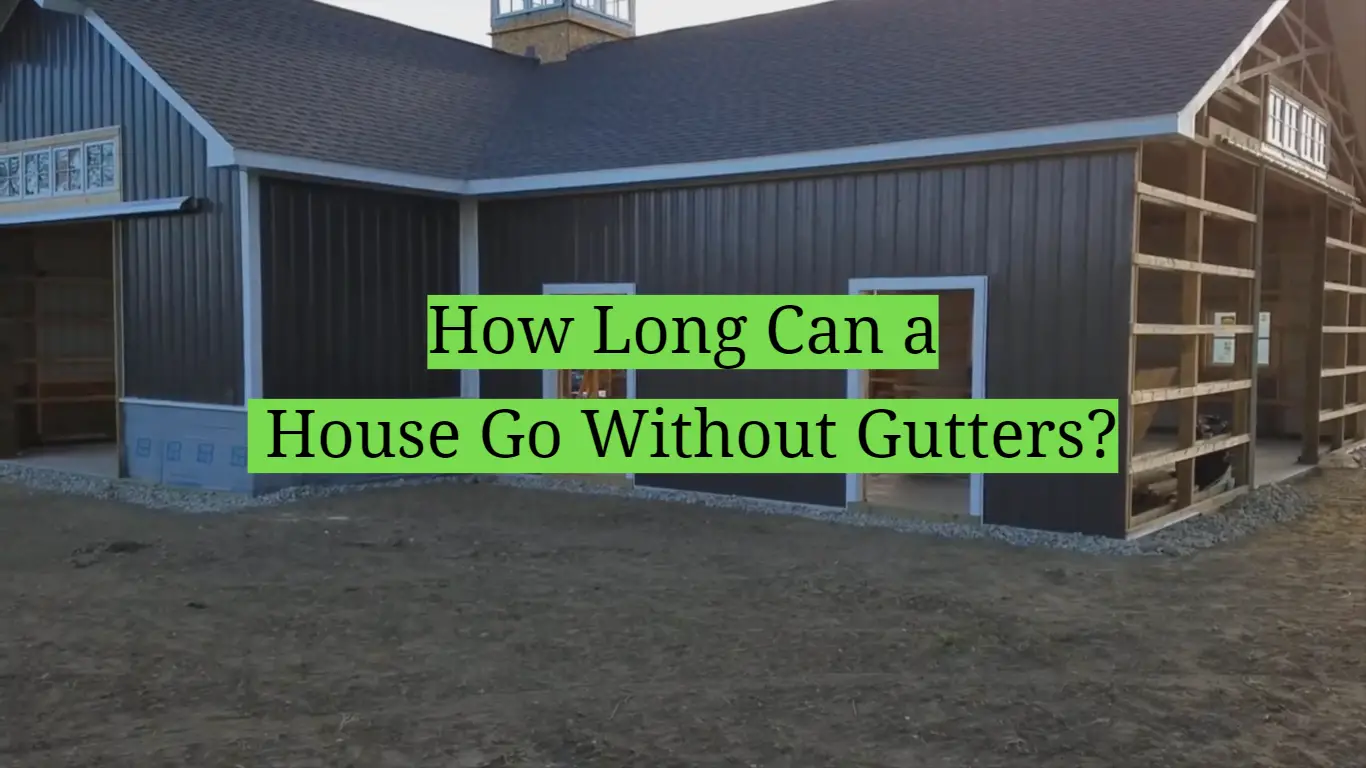




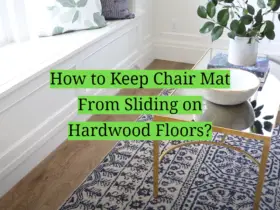



Leave a Reply